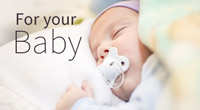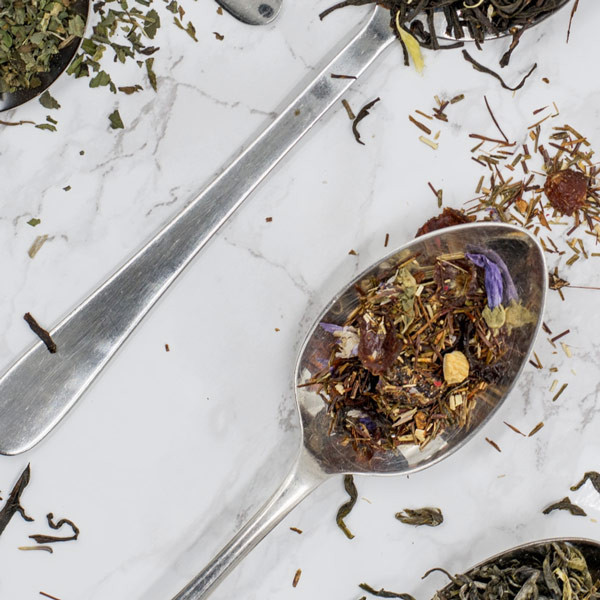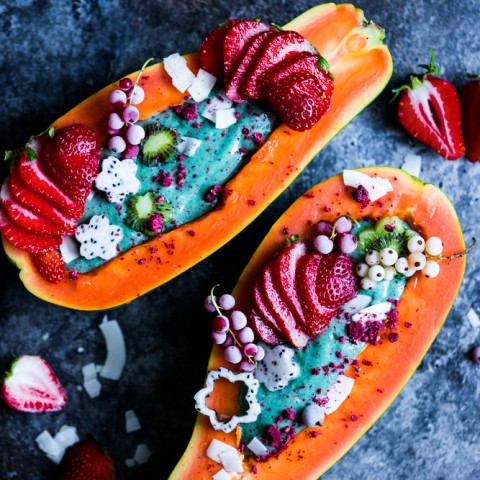I remember the first time I realised even the smallest choices I make can have a massive impact on the environment. I was at a screening for the film 'Bag It', a documentary that explores our dependence on single use plastic. As I sat there, mouth agape at the images flashing on screen of the Great Pacific Garbage Patch and the plastic-filled insides of deceased birdlife, I thought back to the takeaway coffee I'd had earlier that day. Had my choice to have my morning caffeine hit in a disposable coffee cup contributed to this mess? Unfortunately, the answer is most likely yes.
Planet Ark says that about 60,000 kilos of plastic waste from coffee cups is directed to landfill each year in Australia
It is estimated that Australians go through a staggering 1 billion disposable coffee cups per year, and with the majority ending up in either a landfill or the ocean, our takeaway caffeine addiction has become detrimental to the environment. What a lot of people don't realise is most disposable coffee cups have a plastic lining made from polyethylene to make them waterproof. This thin layer of plastic means disposable coffee cups can't be recycled with paper products, nor do they biodegrade. In fact, that plastic lining means your coffee cup may just outlive you and me.
In a marine environment, the plastic will break down into smaller pieces, which is then either ingested by marine life, birdlife, and other creatures, or, adding to the plastic soup that is now our oceans. According to Choice "Planet Ark says that about 60,000 kilos of plastic waste from coffee cups is directed to landfill each year in Australia". Considering the amount of time disposable coffee cups spend in our possession – 13 minutes on average – the scale seems unfairly tipped towards a negative impact on the environment.
The good news is there are steps we can take to abate that lopsided scale. Perhaps the most obvious is to simply take a seat at your favourite coffee haunt and savour your morning roast. But what if you don't have the luxury of soaking up the hypnotic ambience of a coffee shop with your caffeine hit? Reusable coffee cups are the antidote for the busy, environmentally aware coffee lovers amongst us. There are loads of choices available these days, from Klean Kanteen Tumblers that have the added benefit of keeping your coffee hot for up to 4 hours, to Eco SouLife Travel Cups, which are made from rice husk or bamboo fibres, and biodegrade in 2 - 3 years. Due to the resources, energy, and manufacturing that goes into producing reusable cups, it has been argued that they are equally as bad for the environment, but this isn't so. A reusable coffee cup reaches a break-even energy output at around 17 uses, depending on the material the cup is made from. This means that any time a reusable coffee cup is used PAST this point, it is of benefit to the environment.
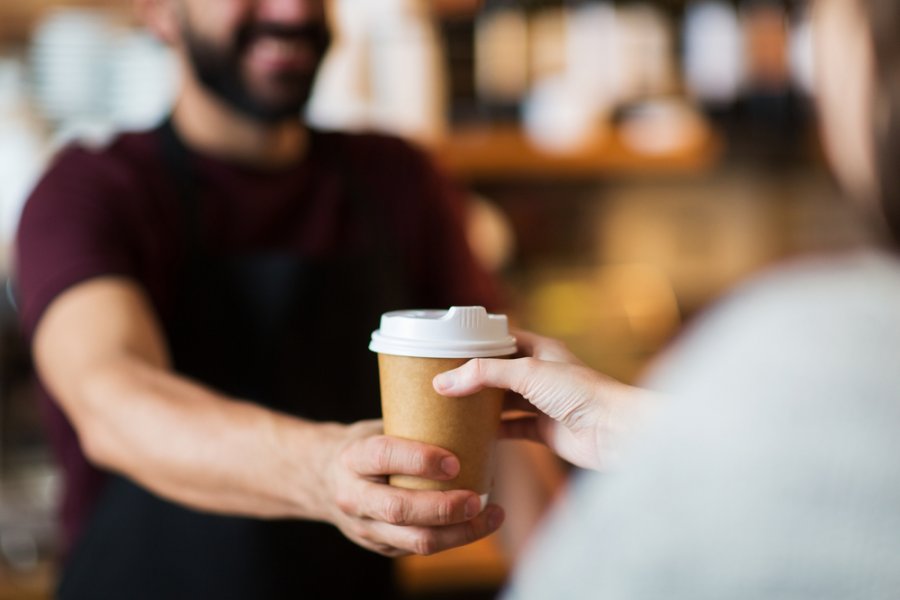
Cafés are in a unique position to help reduce, or even eliminate, the use of disposable coffee cups. Choosing to only stock renewable resource cups like BioPak, which are commercially compostable and recyclable, will go a long way to reducing the environmental impact of disposable coffee cups. However, encouraging a reusable coffee cup culture is the ideal scenario. Cafés can participate in the Responsible Cafes initiative, where customers receive a discount when they 'choose to reuse' and bring their own reusable coffee cup. You can find your nearest participating café on the Café Map, or you could petition your favourite haunt to register for the program.
Perth's Antz Inya Pantz HQ coffee shop is one cafe that takes their environmental footprint seriously. In an effective move to reduce their environmental impact, they have banned disposable coffee cups completely, encouraging the use of reusable coffee cups. No cup? No worries. Customers can purchase a reusable coffee cup with a free coffee thrown in when they buy one. The café estimates that over a 12-month period they've prevented approximately 70,000 disposable coffee cups from ending up in landfill.
If you do find yourself with a disposable coffee cup in hand, say no to the plastic lid that spends minutes in our possession, then a lifetime in landfill or the ocean. And when it comes to disposing of the cup, don't put it in the recycling bin. Planet Ark recommends "separating the lids and putting all coffee cups in the waste bin for landfill". This may seem backwards but unfortunately the disposable cups can potentially contaminate recyclable items resulting in everything ending up in landfill. This is largely due to issues within the recycling industry and consumer confusion around their recyclability. Recycling disposable coffee cups is not a simple task, and many recycling plants consider the cups to be a contaminant due to their plastic lining.
Ultimately, the onus needs to be on our governments. Select European countries are leading the way, with France set to be the first country in the world to ban disposable plastics, aiming to eliminate them by 2020, and Germany trialling the hugely successful Freiburg Cup. Available at participating stores, customers put a small refundable deposit on the reusable Freiburg Cup, then return it to any of the 100 participating businesses around the city. The cup is then washed and disinfected, and put back into circulation; each Freiburg Cup can be used up to 400 times. The solution is ideal for those conscious, yet forgetful, coffee drinkers among us. And let's be honest, we are all a little forgetful sometimes.
For the sake of the environment, and future generations who are set to inherit this literal mess, it is our duty to ensure society's addiction to disposable coffee cups is eradicated. And with a dependence that sees Australia alone race through an incredible 50,000 disposable coffee cups every half an hour, this seems like an important place to start. The next time you're lining up for your caffeine fix consider the impact a small, yet significant, choice to have it in a disposable coffee cup has on the environment. Your coffee cup may just end up in a million pieces, swirling around the Pacific Ocean.
You might also like - Montville Coffee & Before You Speak Coffee
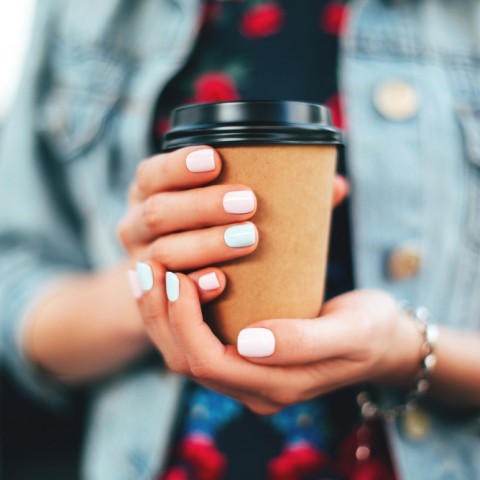
Love Health?
From recipes, trends and discounts, expect great things via email this month.
More Great Reads!
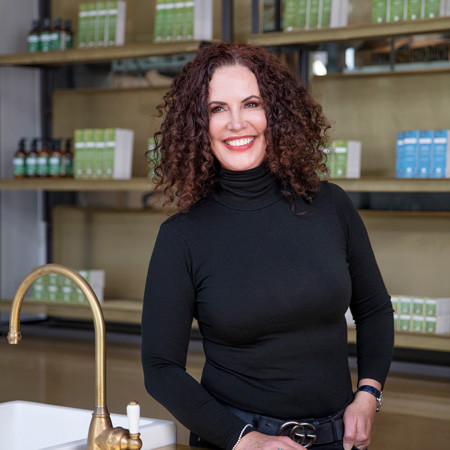
Behind The Brand: Antipodes
Recipes We Love!
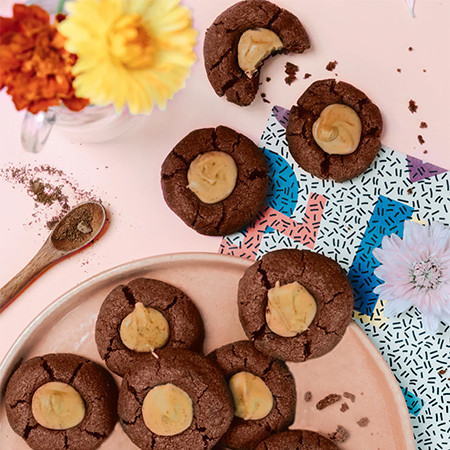
Clever Cookies




